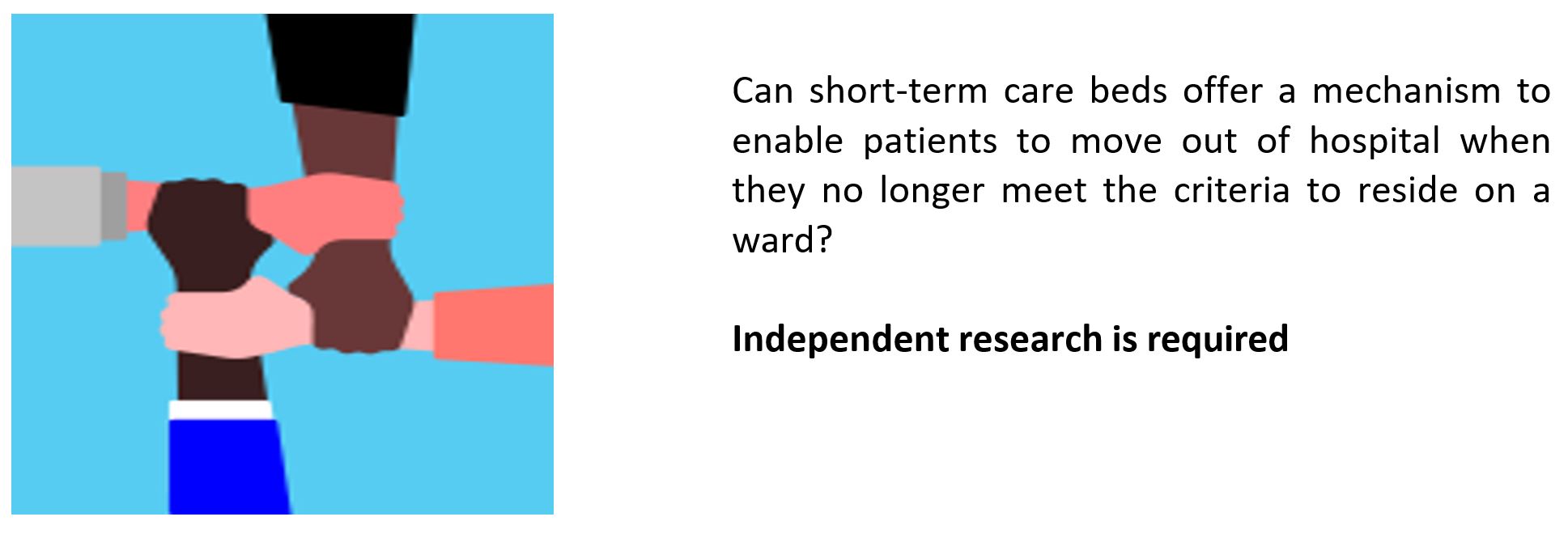March 25, 2024

What is going on?
A delayed discharge occurs when a patient is medically fit but there is a delay in moving them out of hospital. On the 31st July 2023, 11,171 patients in acute hospitals in England had not been discharged who no longer met the criteria to reside on a ward (Statistics » Discharge delays (Acute) (england.nhs.uk)
Various reasons for the delays, including:

- Awaiting a medical decision
- Availability of a bed in a residential or nursing home
- Availability of resource for assessment and start of care at home
- Availability of a rehabilitation bed in a community hospital or other bedded setting
Awaiting confirmation from community for discharge hub to action referral
Short-term beds in long-term care facilities (e.g. residential and care homes) are part of a range of initiatives to reduce pressure on the NHS. This helps to discharge older people when they are medically fit to leave hospital, so they can receive rehabilitation in a suitable long-term care facility, before returning back to their own home.

The project
We wanted to explore the availability and demand of short-term care beds within long-term care facilities for older adults, to facilitate discharge of older patients from hospital in a timely manner.
14 care homes participated in the project during 2021 and 2022.
What is working well?
- Availability of short-term beds – 4 managers reported having beds that are solely used for short- stay (for example respite) residents. The rest did not have specific beds, but they could accept short-stay residents.
- Stays are for 1 to 4 weeks with reasons covering respite for family carers, rehabilitation, and delays with care packages, waiting for a pre-assessment or full assessment or a family arrangement from hospital.
- Short-term care offer an important mechanism to help move patients out of hospital when they are medically fit.
- When accurate and current information on a person’s health and physical conditions is made available before accepting someone for short-term care.
- Good communication and planning between and within the care sectors to assist in transferring patients out of hospital in a timely manner.
Where are the challenges?
- Used to encourage patients out of hospital, which may not be an appropriate way forward as this leads to a permanent stay.
- Introduction of contracted short-term beds in their locality, means long-term care facilities are having to let beds lie empty and this has an impact on managing costs for the general home.
- Short-term beds can become permanent reducing the availability of beds for assessment and affecting access for patients ready to be discharged from hospital.
- Discharge at the weekend can result in care homes not being provided with adequate resources, such as GP cover during the weekend.
- During the COVID-19 pandemic residents were required to isolate and therefore missed crucial rehabilitation during a critical timeframe of six weeks after hospital discharge.
What’s needed?
- Accurate and current information on a person’s health and physical conditions before accepting someone for short-term care.
- Good communication and planning between and within the care sectors to assist in transferring patients out of hospital in a timely manner.
When interpreting the findings, it is acknowledged the study was limited to a small sample of care home managers who participated.
If you would like to discuss the study, please send us an email and we will be in touch! Karen: K.C.Jones@kent.ac.uk
Madeline: M.S.Naick@kent.ac.uk
Disclaimer
The output is based on independent research commissioned and funded by the National Institute for Health and Care Research (NIHR) Policy Research Programme through its core support to the Adult Social
Care Research Unit (ASCRU) (PR-PRU1217-21101). The views expressed are those of the authors and are not necessarily those of the NIHR or the Department of Health and Social Care.